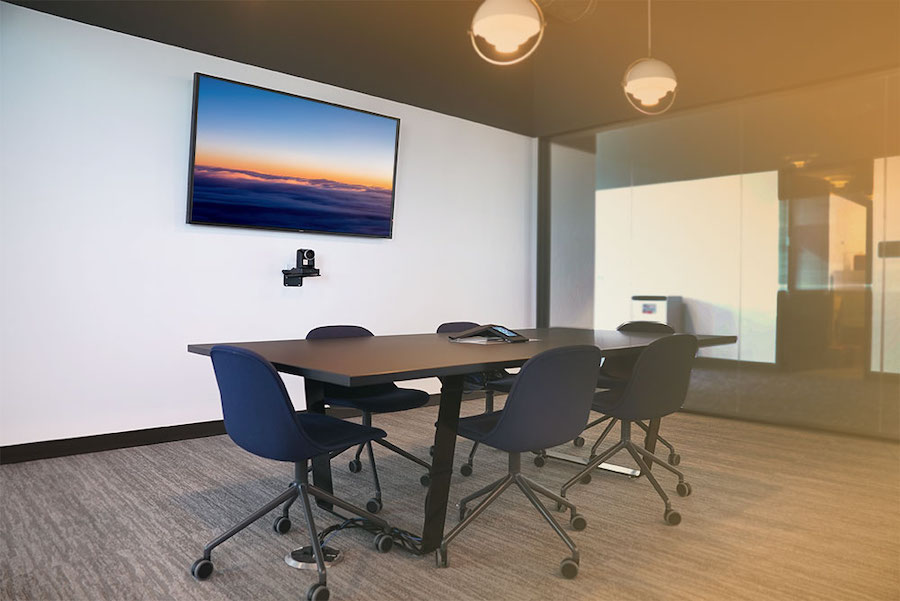
How Unified Communication as a Service Accelerates Hybrid Work Models
Access, Control, and Usability Are Keys to Success
Will the hybrid work model be just a passing fad? As pandemics fade into memory, will companies demand that workers get back into physical offices in the name of productivity and fostering interpersonal relationships? We can’t predict the future, but the reality is that hybrid work was already a growing trend thanks to technological advancements.
Twenty years ago, knowledge workers could telecommute (a now quaint-sounding term) with voice and internet access. The experience was less than perfect, as the integration of offsite staff into onsite meetings and activities was not quite there with the existing technology. The advent of unified communication and collaboration (UCC) solutions provided powerful and scalable tools for workers to have a common platform that worked not only in the office but anywhere with a solid internet connection.
These solutions, embodied by such platforms as Cisco/WebEx, Microsoft, Zoom, RingCentral, Google, and others, provide a rich set of tools for knowledge work, unifying voice, video, messaging, collaboration, presence, and meeting tools into easy-to-use software. Further, these solutions have all moved into cloud-hosted SaaS (Software as a Service) models, making them easier to administer, manage, and scale.
How does this unified communication as a service model impact hybrid work? Read on below for more
SEE ALSO: Three Ways That Your Organization Can Benefit from Managed Services for AV Technology
Desktop as a Service
The UCC as a service model enables everyone to get the same experience whether in or out of the office. Cloud-managed configuration and endpoints means workers are not dependent on specific equipment or software in the office for accomplishing daily work, or more importantly, collaborating with their teams just as well as in the office. A Microsoft Teams or Zoom meeting and collaboration looks and runs the same from a laptop at home or a desktop in the office.
Easier Endpoint Management
UCC solutions work across different desktop and device operating systems, from Windows to macOS to iOS and Android. Zero trust identity models can enforce endpoint security so that identity is not based on network presence in an office. Built-in analytics tools allow enterprise organizations to monitor usage and adjust tools and experiences for less friction and improved productivity.
Improved Hybrid Work Experiences
What happens when some workers are remote, and some are in the office in a hybrid model? UCC as a service simplifies the collaboration experience by extending into huddle rooms, conference rooms, and training spaces. The same UCC solution that everyone uses on the desktop integrates with cameras, audio, and microphones in office workspaces. Anyone in the company can walk into any space and start a meeting with remote participants in the same way they do it from their own device. The UCC solution in a meeting space is also managed and administered remotely so that any issues in usage or downtime can be resolved quickly.
Integrating office-based AV systems with UCC solutions requires more than a traditional IT skillset. Cameras, microphones, displays, control systems, and room design all require an experienced AV skillset and a deep knowledge of remote monitoring, security, and software-driven updates and upgrades.
Level 3 Audiovisual is an Arizona-based national managed services provider helping organizations of all sizes in Scottsdale and across the U.S. design, deploy, and manage AV systems and infrastructure. Get started by reaching out to Level 3 Audiovisual here or click the chat box below to connect instantly. We look forward to working with you.

